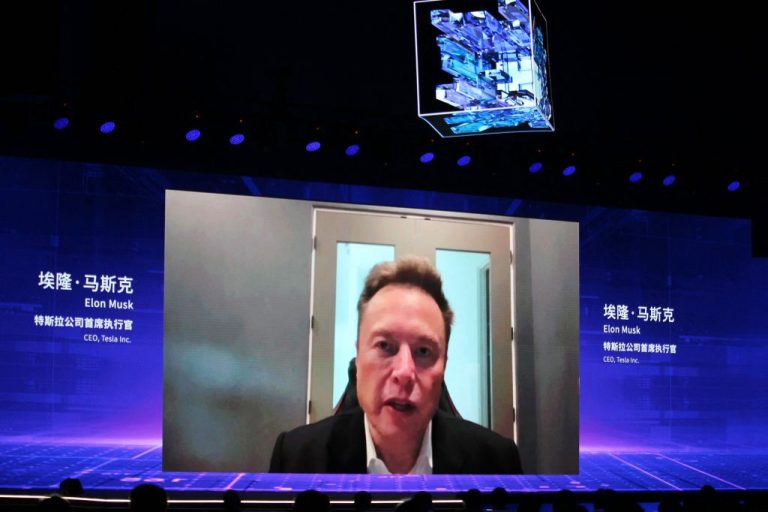Tesla CEO and Twitter owner Elon Musk warned the Chinese government that artificial intelligence may be capable of overthrowing it during a recent trip to Beijing and Shanghai.
The billionaire revealed the comments in a Spaces event titled “The Future of AI” on the Twitter platform, Business Insider reported on July 13.
Musk told listeners he had spent “a fair bit of time with senior leadership” during his May trip to China, the first since the Wuhan Pneumonia pandemic began in late 2019, where he was formally received by Foreign Minister Qin Gang.
He warned President Xi Jinping’s administration that artificial intelligence could lead to a “digital superintelligence” that Business Insider summarized as having the power to “usurp the Chinese Communist Party and take control of the country.”
Musk said he thought his comments “did resonate” with Beijing during the Spaces, adding, “No government wants to find itself unseated by a digital superintelligence.”
Success
You are now signed up for our newsletter
Success
Check your email to complete sign up
Reporting by Reuters on the event added that U.S. House of Representatives members Ro Khanna (D-CA) and Mike Gallagher (R-WI) were present on the Spaces and that Musk had used the anecdote to declare that “China is definitely interested in working in a cooperative international framework for AI regulation.”
Just days prior to the comments, Xi’s Communist Party issued tight controls on companies and entities wishing to provide generative AI services to the Chinese public.
The official regulations require providers keep their algorithms clean of factors that would count as “inciting subversion of national sovereignty or the overturn of the socialist system” or “endangering national security and interests or harming the nation’s image.”
Presently, ChatGPT, Google Bard, and Bing AI are not permitted inside of China’s highly-censored Internet. Although offerings from national entities Baidu and Alibaba have entered limited-use beta testing, they have not been made available to the public either.
South China Morning Post reported that Musk also said the Chinese leadership is on the side of “team humanity” regarding global AI legislative frameworks.
But Rep. Gallagher dissented, saying that Xi’s faction is on “team genocidal communism” and that Party leaders would use AI as an “instrument for total tech totalitarian control,” Futurism reported.
“I just remain sceptical that they would slow down [AI] development, and I’m fairly certain in the near term, Xi Jinping will use this as an instrument for total tech totalitarian control,” SCMP quoted Gallagher as stating.
SCMP paraphrased Musk as admitting, “The biggest obstacle to AI regulation outside China is concern that Beijing would not join international efforts and thus gain an advantage in the tech.”
Musk was further quoted during the event as positing that as the future becomes more dystopian, present conflicts will seem small by comparison to what unfolds, “I think, ultimately, these nation-state battles will seem parochial compared to a digital super intelligence,” Futurism stated.
Despite the concerns, Big Tech has a stated interest in expanding AI operations inside the Mainland’s borders.
Microsoft Greater China CEO Hou Yang was quoted as telling an audience during the opening ceremony of the World Artificial Intelligence Conference (WAIC) in early July, “We’ll use our technology and resources to deeply cultivate China’s ecosystem, and expand exchanges with organizations in partners in different industries,” Nikkei reported.
The WAIC is an annual event organized by the central Communist Party government and the municipal government of Shanghai.
Huawei Chairman Ken Hu was also quoted at the WAIC as saying his enterprise intends to “build a strong computing power base to support the development of China’s AI business.”
Hu’s comments were particularly apt in light of late June leaks to the Wall Street Journal by the Biden Administration stating that Washington intended to fully ban sales of NVIDIA’s processors to Mainland entities in order to hinder China’s artificial intelligence development.
Musk also called AI “a civilizational risk” during the Spaces, Bloomberg reported.
He added that diplomatic relations between Beijing and Washington would improve “once the, the very difficult question of Taiwan is — you know — resolved.”
“It’s probably gonna get hot in the Pacific — hopefully not too hot…Hopefully we can get past that and get to a positive situation for the world in the spirit of: aspirationally we’re all on Team Humanity. But it’s going to get spicy,” Bloomberg quoted Musk as further stating.














